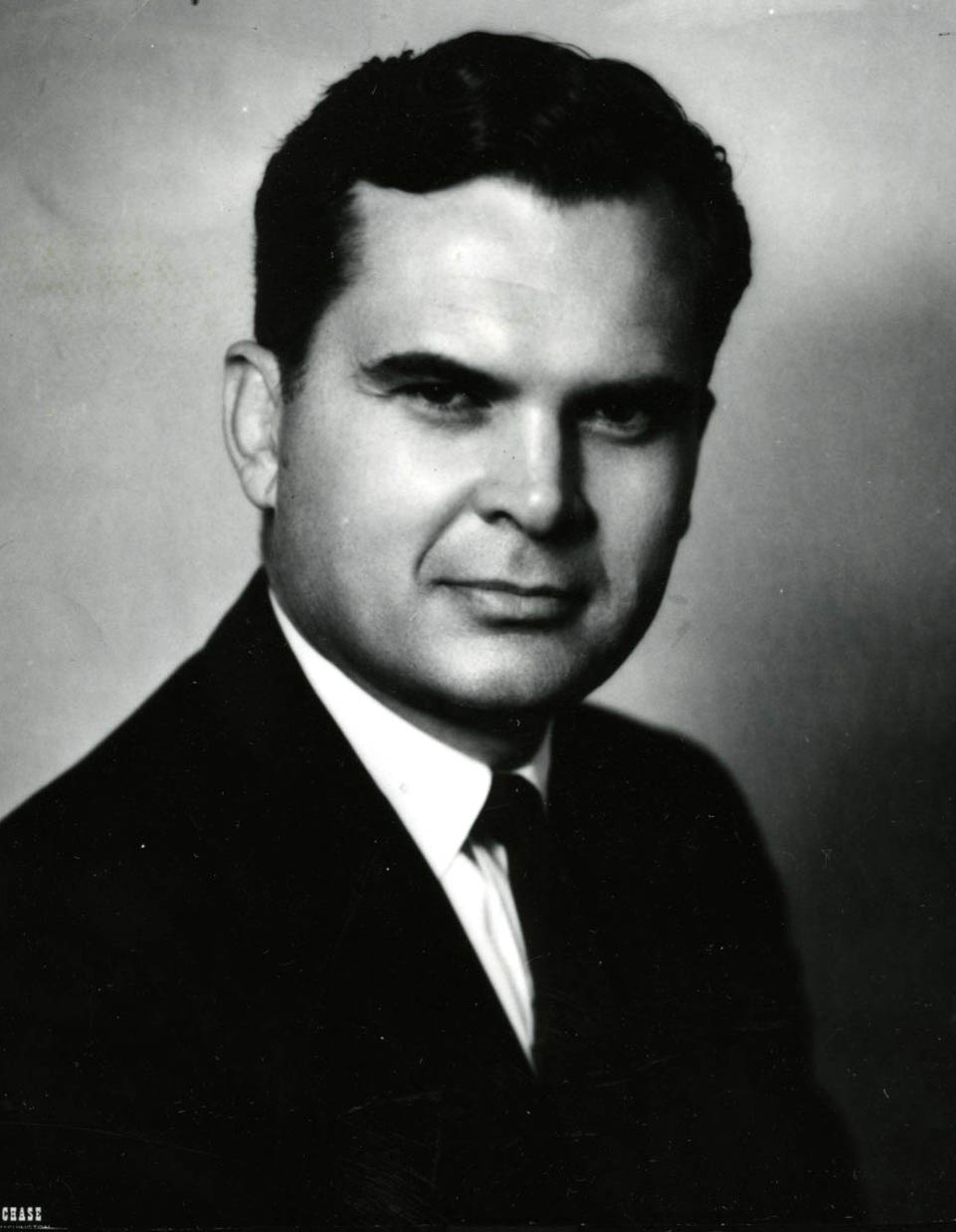An Air Force veteran, lawyer, and devout Christian, Charles O. “Charlie” Porter may be best remembered for his long legal fight to remove a Christian cross from Eugene's Skinner's Butte. But Charlie Porter, born in Klamath Falls in 1919, was more than a firebrand activist and legal gadfly, a charge leveled by his critics. Renowned for his liberal beliefs, Porter was a two-term congressman from Oregon's Fourth District (1957-1961) and a proponent during the height of the Cold War for liberalizing trade and admitting China to the United Nations.
Porter supported nuclear disarmament, repeatedly called for an end to nuclear testing, and, as a congressman, chastised House Speaker John McCormick for consorting with Dominican Republic dictator Raphael Trujillo. David Fidanque of Oregon's American Civil Liberties Union remarked after Porter's death in 2006 that the former congressman "promoted a political view on the liberal edge, in many cases, ahead of his time." By all measures, Porter was "smarter than hell," as a Eugene Register-Guard reporter put it. He was a lively, witty, and restless person who took great pleasure in jousting with the likes of Richard Nixon and George W. Bush.
Porter earned a bachelor's degree in sociology, graduating cum laude from Harvard University in 1941. After leaving regular military service in 1945, he entered Harvard Law School and earned a law degree in 1947. Porter founded the Harvard Law Record in 1946 and then worked for two years as a law clerk for the U.S. Ninth Circuit Court. He was admitted to the Oregon bar in 1948 and practiced law in Eugene from 1951 to 1956. He reentered the practice when voters denied him a third congressional term in 1960.
During Porter's two terms in the U.S. House of Representatives, he was part of a remarkable Oregon delegation that included senators Wayne Morse and Richard Neuberger and representatives Edith Green and Al Ullman. But the young Democrat, who was thirty-seven when he entered Congress, refused to show deference to his more seasoned colleagues. "Porter let rip from the outset with an agenda that often startled and outraged his colleagues," the Register-Guard reported in a January 4, 2006, editorial at his death.
Porter’s legendary three-decade legal struggle to remove the concrete cross from Skinner's Butte centered on the fact that the cross—erected in the middle of the night in 1964—was on public property. Porter brought the first lawsuit challenging the siting of the cross in 1966; the Ninth Circuit Court finally declared the location of the cross unconstitutional in 1997 (after the cross had already been moved to a local Christian college). "People have to understand that the government must be neutral and that's what the Constitution mandates," Porter told a reporter in 1996.
Porter married Priscilla D. Galassi in Cambridge, Massachusetts, in 1943. The two had four children, a daughter, Anne, and three sons—Don, Chris, and Sam. Priscilla died in 2002; Charlie died four years later of Alzheimer-related dementia.
-
![]()
U.S. Rep. from Oregon's 4th District, Charles Porter, 1957.
Oregon Historical Society Research Library, Oregon Journal Collection, 013519
-
![]()
Charles Orlando Porter.
Courtesy United States House of Representative History, Art & Archives
-
![]()
U.S. Congressman Charles O. Porter with his wife Priscilla and their four children, 1956.
Oregon Historical Society Research Library, Oregon Journal Collection, 013403
-
![]()
Charles O. Porter in his office in Eugene, 1986.
Oregon Historical Society Research Library, Digital Collections, SR1125_Image01
Related Entries
-
![Albert Conrad "Al" Ullman (1914-1986)]()
Albert Conrad "Al" Ullman (1914-1986)
Albert Conrad "Al" Ullman, the U.S. representative from Oregon’s Second…
-
![Edith Starrett Green (1910-1987)]()
Edith Starrett Green (1910-1987)
Democrat Edith Starrett Green represented Oregon’s 3rd Congressional Di…
Map This on the Oregon History WayFinder
The Oregon History Wayfinder is an interactive map that identifies significant places, people, and events in Oregon history.
Further Reading
"In Memoriam: Charles O. Porter." Oregon State Bar Bulletin (April 2006).
Abell, Ron. "Good Guy, Right Issues, Few Wins." Willamette Week, February 19, 1976.
Neville, Paul. "'Dark Visitor' Hasn't Gotten Best of Charlie Porter." Register-Guard, April 8, 2004.






